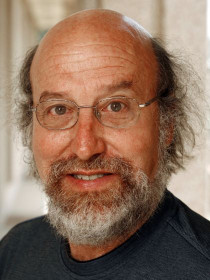
Michael Givel
Professor of Political Science, University of Oklahoma-Norman Campus
Chapter Member: Oklahoma SSN
Areas of Expertise:
About Michael
Professor Givel is professor of political science at The University of Oklahoma.
Contributions
In the News
Guest on Radio New Zealand’s “Ideas”, March 21, 2010.
Publications
"Tobacco Lobby Political Influence on U.S. State Legislatures in the 1990s" (with ). Tobacco Control 10 (Summer 2001): 124-134.
Demonstrates how in the 1990s the tobacco lobby engaged in a comprehensive and aggressive political effort in state legislatures to sell tobacco with the least hindrance using lobbying, the media, public relations, front groups, industry allies, and contributions to legislators; finds that the lobby’s political clout is tempered by its poor public image, which forces tobacco lobbyists to conduct business in a behind-the-scenes manner that public health activists would do well to draw attention to.
"Heartland Tobacco War" (with ) (Lexington Press, forthcoming).
Chronicles the political and public relations battles between health advocates and forces supported by the tobacco industry in Oklahoma from the 1980s to the present.
"Punctuated Equilibrium in Limbo: The Tobacco Lobby and U.S. State Policy Making From 1990 to 2003" Policy Studies Journal 34, no. 3 (2006): 405-418.
Examines whether tobacco policy trends – which find the tobacco industry aggressively lobbying against taxes and regulations on its product – can be generalized to punctuated equilibrium theory ideas that policy monopolies are stable over long periods and usually change because of sharp and short-term exogenous shocks to the policy system.
"The War on Poverty Revisited: The Community Services Block Grant Program in the Reagan Years" (University Press of America, 1991).
Focuses on the new Community Services Block Grant program and analyzes the impact of the program’s switch to a more decentralized federal funding system to assess the U.S. government’s war on poverty in the 1980s.